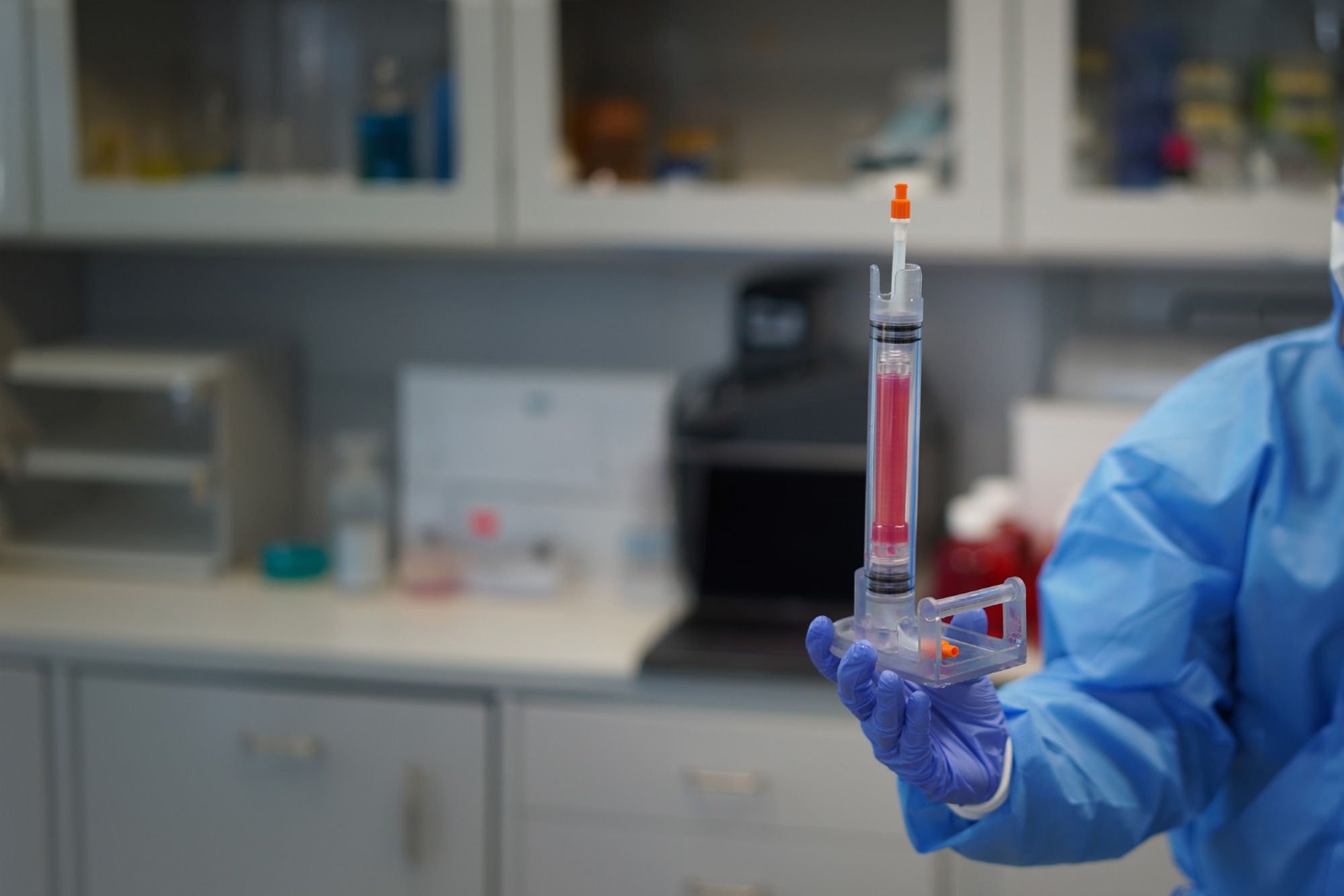From CSEMReviewed by Maria OsipovaFeb 23 2024
A new type of bioreactor that can grow human veins in the lab has been developed by CSEM and ClexBio, a Nordics-based startup specialized in regenerative medicine. Funded by the Research Council of Norway, their solution aims to improve the lives of millions of people suffering from severe chronic venous insufficiency (CVI) by providing them with bio-engineered vein implants.
 CSEM and ClexBio have developed a process for engineering vein grafts comprised of human tissue material that integrates into the patient’s body and can turn into real, living tissue. Image Credit: © ClexBio
CSEM and ClexBio have developed a process for engineering vein grafts comprised of human tissue material that integrates into the patient’s body and can turn into real, living tissue. Image Credit: © ClexBio
A Biodegradable Matrix to Create Human Tissue
Together, the partners created and tested a prototype bioreactor for the production of functional vein implants made of stem-cell derived human tissue which integrates into the patient’s body and becomes living tissue. ClexBio used its regenerative medicine skills, platform IP and extensive knowledge of hydrogels while CSEM’s engineers applied their know-how in automation, micro physiological systems and smart labware.
ClexBio’s platform technology VivoSet is a revolutionary cell-biomaterial formulation that can mold and engineer tissues with complex architecture such as veins. These veins are produced by combining normal cells with ClexBio’s patented biomaterial using a microfluidic process. Once the desired tissue is formed, both cells and scaffolding are removed, leaving behind an implant composed of human extracellular matrix, which is the main component of natural tissues. Their resulting tissue-engineered vein graft can be implanted into patients off the shelf.
CSEM, the Swiss technology innovation center, is specialized in the development of standardized tissue engineering platforms. Its engineers collaborated with ClexBio’s experts to design and validate a bioreactor that can produce these tissue implants in a scalable fashion. The bioreactor replicates the tubular structure of veins carrying blood from the organs back up to the heart. Using a combination of a scaffold and biocompatible membranes, as well as 3D printing with biocompatible resins, CSEM’s team designed the mold for producing tubes such as veins, and generated a series of engineered tissues with a length of approx. 10 cm and diameter of approx. 1 cm.
Based on ClexBio’s early pre-clinical results, implants do not trigger an immune response in patients after being implanted. Instead, they are colonized by the patient’s own cells and turn into functional tissue that integrates and grows with the body – a truly regenerative solution and a potential breakthrough in modern medicine.
Engineering of Venous Tissue
The Supervene project aimed to develop standardized, automated fabrication processes for regenerative medicine, moving from the lab bench to a clinical setting. “VivoSet is a new technology that can unlock the incredible potential of novel cell therapies”, states Stéphanie Boder-Pasche, Senior Project Manager in Cell Microtechnologies at CSEM. Her colleague Gilles Weder, Head of Research & BD in Life Science Technologies at CSEM, adds: “To produce such revolutionary implants, we need a closed, high-tech bio-manufacturing system that can operate automatically”. The veins are matured over a few weeks in a sterile environment, with automated media circulation for oxygen and nutrients supply. For Armend Håti, CEO & Co-Founder of ClexBio, this is a critical milestone: “Using a closed system to generate the vein grafts reduces the risk of contamination, ensures product quality and safety, and facilitates regulatory compliance. This is a vital prerequisite for our ability to conduct in-human studies and scale up commercially in a GMP setting in the future.”
Outlook
Now that the system has been developed, ClexBio will conduct additional pre-clinical testing in larger animal models to generate data on the functionality of the bio-engineered vein implants in the cardiovascular system, including their ability to repopulate with the host’s own cells. “We are truly excited about the paradigm shift this may usher in for human surgery and the treatment of damaged tissues – we are moving away from a world of synthetic implants and stepping into the world of bioengineering" says Armend Håti.
What is Chronic Venous Insufficiency?
Severe Chronic venous insufficiency (CVI) occurs when the valves in the veins of the legs don't work properly, leading to blood reflux and a build-up of blood in the veins. Afflicting millions of people around the world, this disease can lead to symptoms such as varicose veins, pain, swelling, edema, cramps, and recurring ulcers. Synthetic implants or stents have traditionally failed as they lead to thrombotic events in the venous system. Existing treatments range from compression stockings to symptomatic wound treatment, but to this date, there is no truly effective solution to address severe cases of CVI at the root.